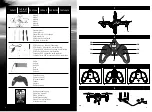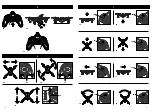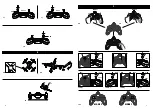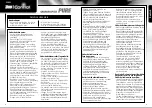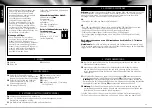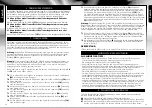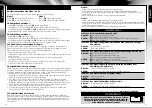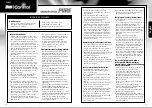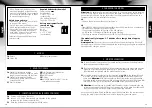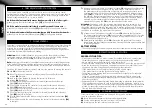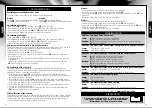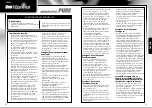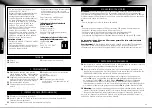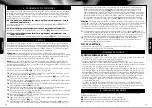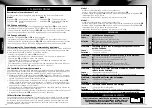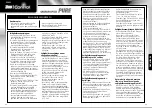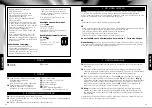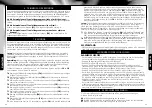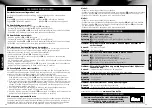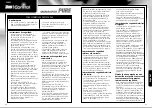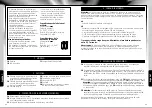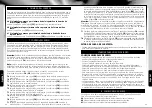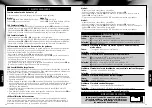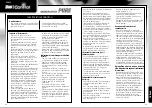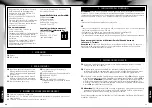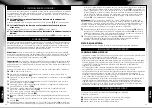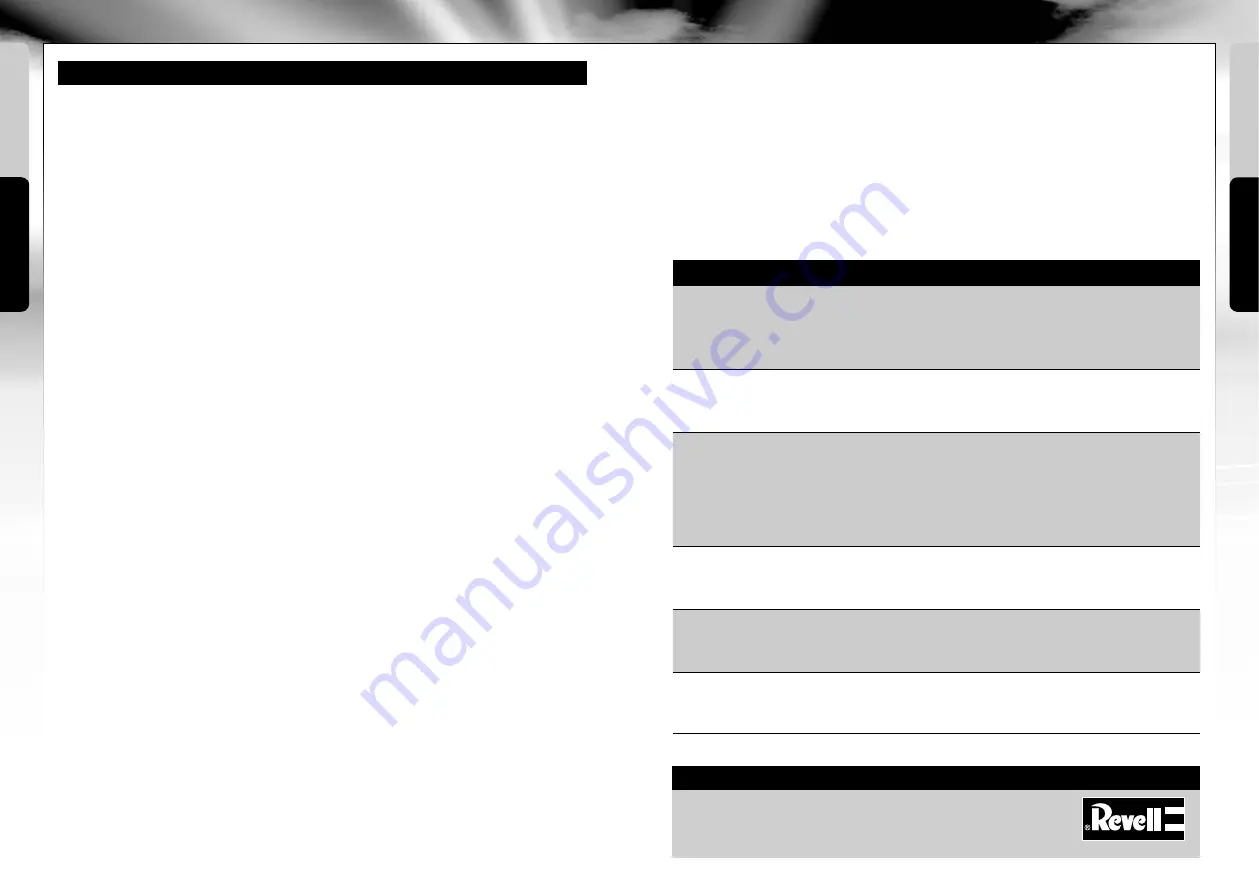
9A Switching to Mode 1:
• Hold control
2A
to the top left and control
2B
to the top right
• Simultaneously switch the ON/OFF switch
2F
to ON (the model remains off)
• To calibrate the controls rotate
2A
and
2B
completely at least twice
• Then press and hold a trim button for at least two seconds
9B Switching to Mode 2:
• Hold control
2A
and
2B
to the top left
• Simultaneously switch the ON/OFF switch
2F
to ON (the model remains off)
• To calibrate the controls rotate
2A
and
2B
completely at least twice
• Then press and hold a trim button for at least two seconds
9C Reversal of the control direction of the controls
The control direction of the controls can be adjusted in the setup menu. Only use this
function if you have already gathered adequate experience operating the
model (Mode 2, the model is switched on):
• Hold the control for thrust
2A
all the way down
• Simultaneously press the control for forward/backwards
2B
down vertically for at
least one second.
• The display shows SE. Now the control directions of the axes are reversed with the
trim buttons.
• To save the settings and exit the menu, press the control for forward/backwards
2B
down vertically for at least 2 seconds
9D Sensitivity of the controls
The flying speed of the model can be adapted by changing the sensitivity of the
controls. Only use this function if you have already gathered adequate experience with
the model (Mode 2, the model switched on):
1. Hold the control for thrust
2A
all the way down and hold. Press the control for
forward/backwards
2B
down vertically for at least one second. When SE appears in
the display, release all controls.
2. Now push the control for thrust
2A
down vertically. Each time it is pressed again,
you switch between rotation, forwards/backwards and banking. Three blinking dots
in the trim strip indicate what can currently be changed.
3. By pressing the appropriate trim button, the sensitivity can be adjusted between
a value of 20 (slow) and 60 (fast).
4. To save the settings and exit the menu, press the control for forward/backwards
2B
down vertically for at least 2 seconds.
9E Recalibration of the sensors
Sometimes it is necessary to recalibrate the gyro sensors of the model. Before starting
the recalibration, the battery must be fully charged and the rotors must be inspected
for damage. If the model continuously drifts in one direction and the trim does not
provide sufficient compensation, proceed as follows:
9 ADVANCED SETTINGS
Switching between Flight mode 1 and 2
The term flight mode refers to the assignment of the controls:
Mode 2:
• The model and remote control are switched on and paired
• Switch to the second speed level by pressing control
2B
• Now hold control
2A
to the bottom right and simultaneously move control
2B
back
and forth
• When the status LEDs blink, the process is finished
Mode 1:
• The model and remote control are switched on and paired
• Switch to the second speed level by pressing control
2B
down vertically
• Now hold control
2A
to the bottom right and simultaneously hold control
2B
down
and move quickly back and forth
• When the status LEDs blink, the process is finished
Mode 1
Control
2A
: Forward/backwards and rotation
Control
2B
: Thrust and banking
Mode 2
Control
2A
: Thrust and rotation
Control
2B
: Forwards/backwards and banking
English
English
TROUBLESHOOTING
Problem: The propellers do not move.
Cause:
A)
No connection has been established.
B)
The battery is too weak or depleted.
Remedy: A)
Switch everything off and switch on again in the correct sequence.
B)
Charge the battery.
Problem: The model stops and descends during flight for no apparent reason.
Cause:
• The battery is too weak.
Remedy:
• Charge the battery.
Problem: The model cannot be controlled with the remote control.
Cause:
A)
The ON/OFF switch is in the „OFF“ position.
B)
The batteries were not inserted correctly.
C)
The batteries do not have enough power.
Remedy: A)
Set the ON/OFF switch to the „ON“ position.
B)
Check whether the batteries are inserted correctly.
C)
Insert new batteries
Problem: The model only turns on its vertical axis or rolls over when started.
Cause:
• Incorrect arrangement of the propellers.
Remedy:
• Install the propellers and arms as outlined in the manual.
Problem: The model will no longer fly loops.
Cause:
• Battery too weak.
Remedy:
• Charge the battery.
Problem: The model overturns when starting.
Cause:
• The rotors are mounted incorrectly.
Remedy:
• Mount rotors A and B according to the assembly instructions.
22
23
Additional tips and tricks can be found online at
www.revell-control.de
.
www.revell-control.de
SERVICE NOTES
Go to www.revell-control.de for ordering information
and tips on replacing spare parts, plus other useful
information on all Revell Control models.


